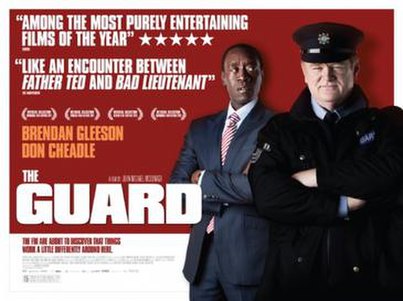1 The dangers of second-hand smoke for young children
2 The probability of children imitating behaviour they had seen from adults
3 The cost to the council of cleaning up cigarette butts.

I'm primarily interested in the second reason, or non-reason, as I deem it, but briefly on the other two: the theory of second-hand smoke being dangerous in an outside environment seems an untenable one, especially as the parents smoke on the margins of the playground, rather than in the vicinity of the playing children. Forde admitted that councillors had asked for more data on this problem, and I would guess that data will not be forthcoming, as any link between this type of "exposure" to second-hand smoke and health problems is unlikely to exist, as there is simply too much distance between, and fresh air around, the smokers and the children. The third reason is one that has nothing to do with smoking, as it could just as easily apply to the cost of cleaning up food wrappers or any other kind of litter. It's a littering issue, and is provided for under the law as such.
The Effects of Taboo
But what gets on my nerves is this idea of the imitativeness of children: smoking in playgrounds is to be banned because children must not see adults smoking. To quote Councillor Forde: "We must avoid passing on this learned behaviour. We don’t want children growing up and smoking themselves." Is it suggested that we are to hide the fact of smoking from children? And is it suggested that this means that when they do discover the truth about this mysterious, secretive habit that they will want nothing to do with it. This is a very Victorian notion, that if we create a taboo around something, it might go away.
Rather, the opposite is quite likely in this case. Smoking by virtue of its taboo nature gains an attraction it does not intrinsically have. Because smoking is not attractive. No child likes the idea of filling their lungs with smoke, and they generally find smoking disgusting. The time when it becomes attractive is in adolescence. And the creation of a taboo reinforces that attraction, creates an additional aura of adult glamour around an activity that, allowed to appear in its true light, is not glamorous or attractive. The more we concentrate on shielding children from the notion of smoking, dishonestly pretending it doesn't exist, the more we ensure its continued hold on their imagination. Thus is the power of taboo.
Why should children imitate any behaviour they see? I often watched my mother perform the housework as a child without ever feeling the urge to imitate her. Children don't just blindly imitate everything they see an adult do. They imitate what looks like fun to them. Smoking does not look like fun. It's just an unimaginative and dull simplification to pretend that hiding the existence of the smoking habit from children will have a positive effect. In any case, how much of children's exposure to smoking takes place in a playground? But that's beside the point: the point is, one, that creating taboos is counter-productive, and, two, that children shouldn't be taken for mindless idiots who mimic what they see. What is, is, and it doesn't change by pretending it is not. So, unless you're convinced your kids are particularly stupid and prone to destructive habits, show them the world as it is, and let them find out for themselves what's worth copying and what isn't.
